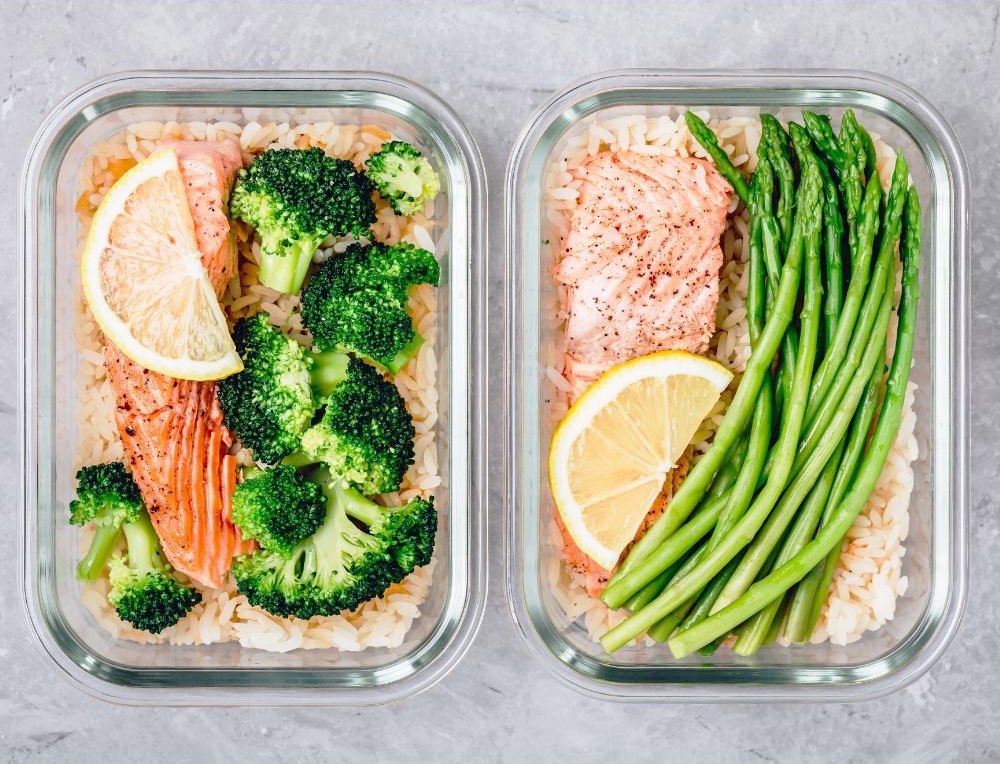Meal prepping is a great way to save time, reduce stress, and maintain a healthy diet. With a little planning and organization, you can set yourself up for success in the kitchen. Here are some effective meal prep tips to help you master meal prepping, along with convenient storage solutions.
1. Plan Your Meals
Why It Matters:
Having a clear meal plan prevents last-minute decisions that can lead to unhealthy choices.
Tips:
- Choose a Day: Dedicate a specific day of the week to plan your meals, typically on weekends.
- Select Recipes: Pick recipes that share ingredients to minimize waste and save money. Aim for a variety of proteins, grains, and vegetables.
2. Create a Grocery List
Why It Matters:
A well-organized grocery list streamlines shopping and ensures you have everything you need.
Tips:
- Categorize Items: Organize your list by sections of the store (produce, dairy, grains) to make shopping more efficient.
- Stick to the List: Avoid impulse buys by focusing on whole, nutrient-dense foods.
3. Invest in Quality Containers
Why It Matters:
Proper storage containers help keep your meals fresh and make it easier to portion out servings.
Tips:
- Choose BPA-Free Containers: Look for glass or high-quality plastic containers that are microwave and dishwasher safe.
- Varying Sizes: Invest in meal prep containers and lunch bags in different sizes to accommodate everything from large meals to snacks. This versatility makes it easier to pack meals for work or on-the-go.
4. Batch Cook Your Staples
Why It Matters:
Cooking in batches saves time and ensures you have the basics ready for various meals.
Tips:
- Cook Grains and Proteins: Prepare large quantities of grains (like quinoa or brown rice) and proteins (such as chicken or beans) at once.
- Roast Vegetables: Oven-roasting a variety of vegetables can add flavor and nutrition to your meals.
5. Keep It Simple
Why It Matters:
Simplicity reduces overwhelm and makes it easier to stick to your meal prep routine.
Tips:
- Limit Ingredients: Focus on a few key ingredients for each meal. Simple recipes are often the most satisfying.
- One-Pan Meals: Opt for recipes that require minimal cleanup, such as one-pan or sheet-pan meals.
6. Label Your Meals
Why It Matters:
Labeling helps you keep track of what you have prepared and when it needs to be consumed.
Tips:
- Use Masking Tape: Write the date and contents on the tape for easy identification.
- Include Reheating Instructions: This can save time when you’re in a rush.
7. Store Meals Properly
Why It Matters:
Proper storage extends the life of your meals and prevents spoilage.
Tips:
- Refrigerate or Freeze: Store meals in the fridge for up to four days or freeze them for longer storage.
- Cool Before Storing: Allow cooked meals to cool before sealing them in containers to prevent condensation.
8. Stay Flexible
Why It Matters:
Flexibility allows you to adapt to changes in your schedule or cravings.
Tips:
- Mix and Match: Prepare versatile components that can be combined in different ways throughout the week.
- Adjust Portions: Don’t hesitate to alter portion sizes or ingredients based on your daily needs.
Meal Prep Tips Summary
| Meal Prep Tips | Why It Matters | Quick Tips |
|---|---|---|
| Plan Your Meals | Prevents last-minute unhealthy choices | Choose a day, pick recipes with shared ingredients |
| Create a Grocery List | Streamlines shopping and ensures essentials | Categorize items, stick to the list |
| Invest in Quality Containers | Keeps meals fresh and makes portioning easier | Use BPA-free containers, have varying sizes |
| Batch Cook Your Staples | Saves time and prepares basics for various meals | Cook grains and proteins in bulk, roast vegetables |
| Keep It Simple | Reduces overwhelm, helps stick to routine | Limit ingredients, opt for one-pan meals |
| Label Your Meals | Helps track freshness and contents | Use masking tape, include reheating instructions |
| Store Meals Properly | Extends meal life and prevents spoilage | Refrigerate/freezer storage, cool meals before sealing |
| Stay Flexible | Allows adaptation to schedule and cravings | Mix and match components, adjust portions |
Conclusion
Successful meal prepping can transform your eating habits and simplify your life. By following these meal prep tips—planning meals, organizing your grocery shopping, and investing in quality containers including various sizes of meal prep containers and lunch bags—you can create a sustainable meal prep routine. With these tips, you’ll be well on your way to enjoying healthy, homemade meals throughout the week.
Frequently Asked Questions (FAQ)
Ideally, choose one or two days a week to prep your meals. Many people find weekends work best, but pick what fits your schedule.
The best containers are BPA-free glass or sturdy plastic ones that are safe to use in both the microwave and dishwasher. Having different sizes helps for portioning.
Meals can generally be kept in the fridge for up to 4 days. FTo store meals for extended periods, freeze them and defrost when ready to eat.
Yes! Prep versatile ingredients that you can mix and match throughout the week for variety without extra effort.
Keep it simple. Limit ingredients, use easy recipes, and batch cook staples. Over time, meal prepping becomes faster and easier.

